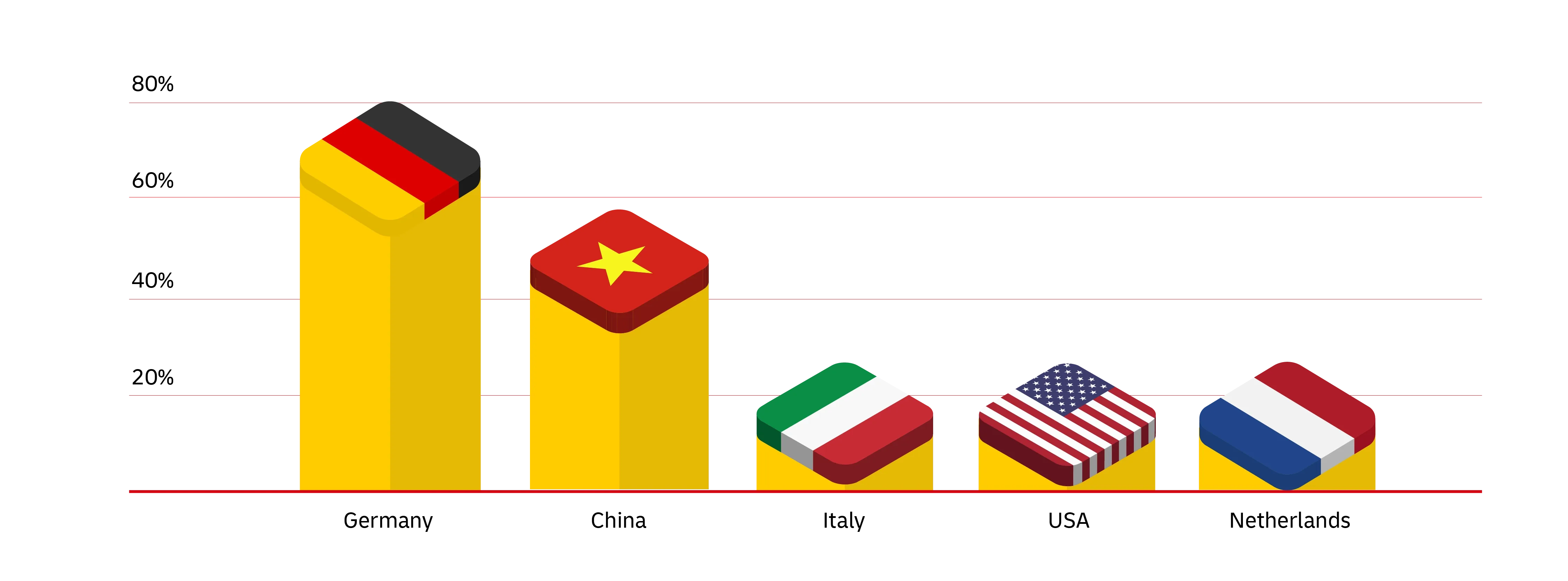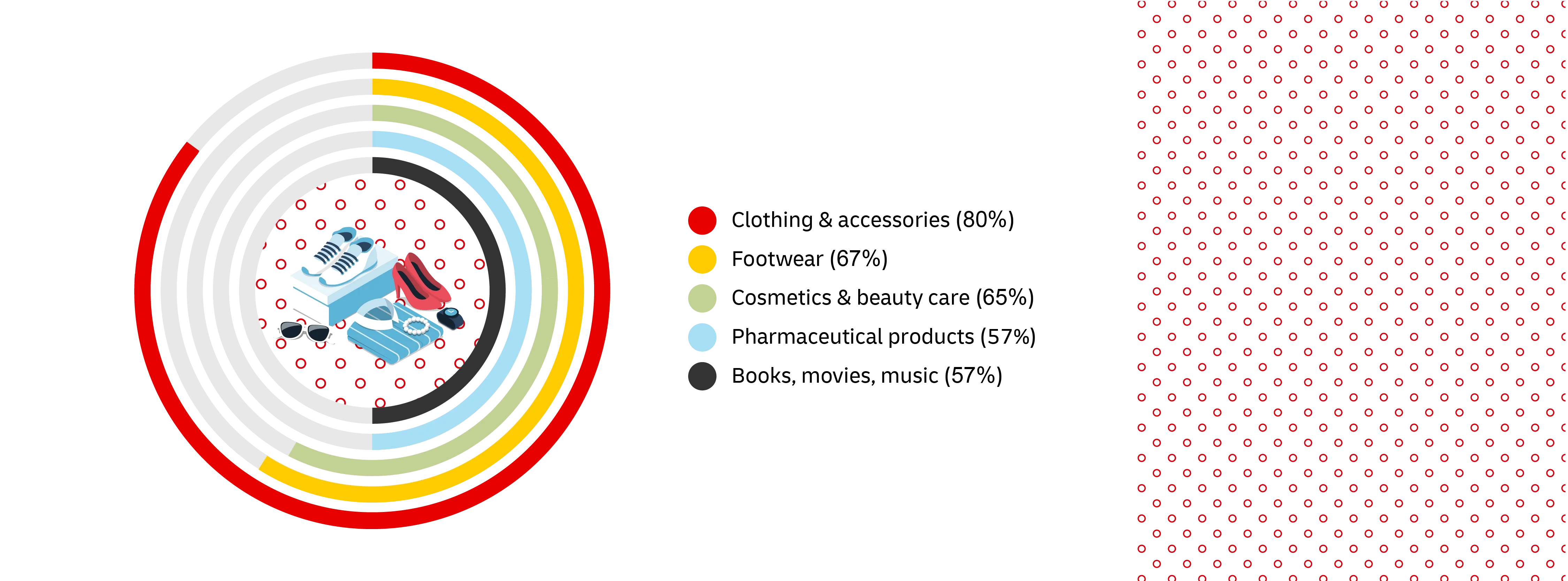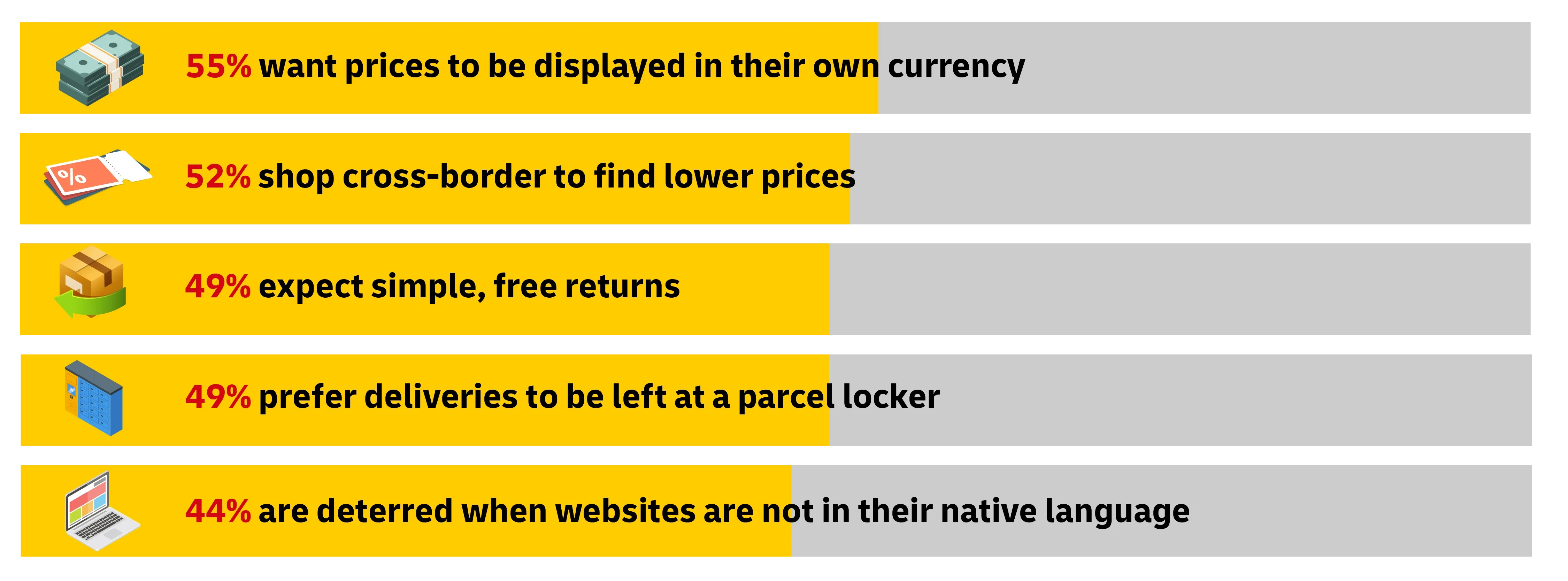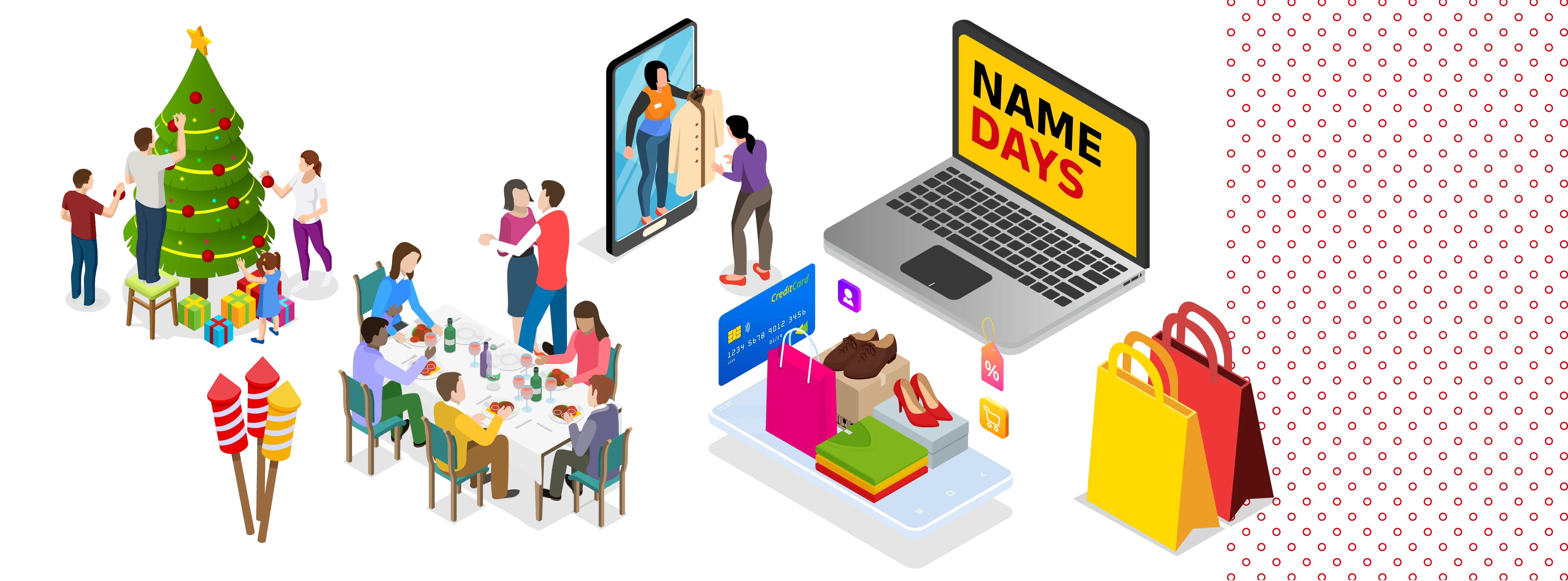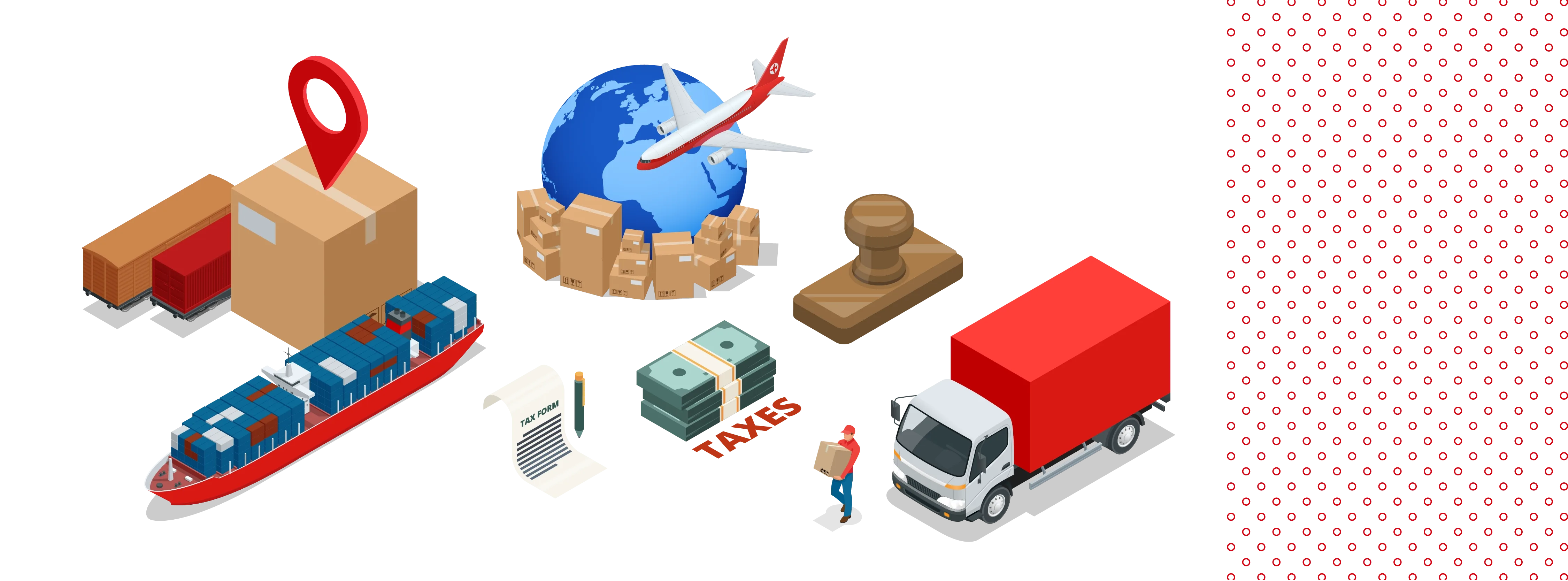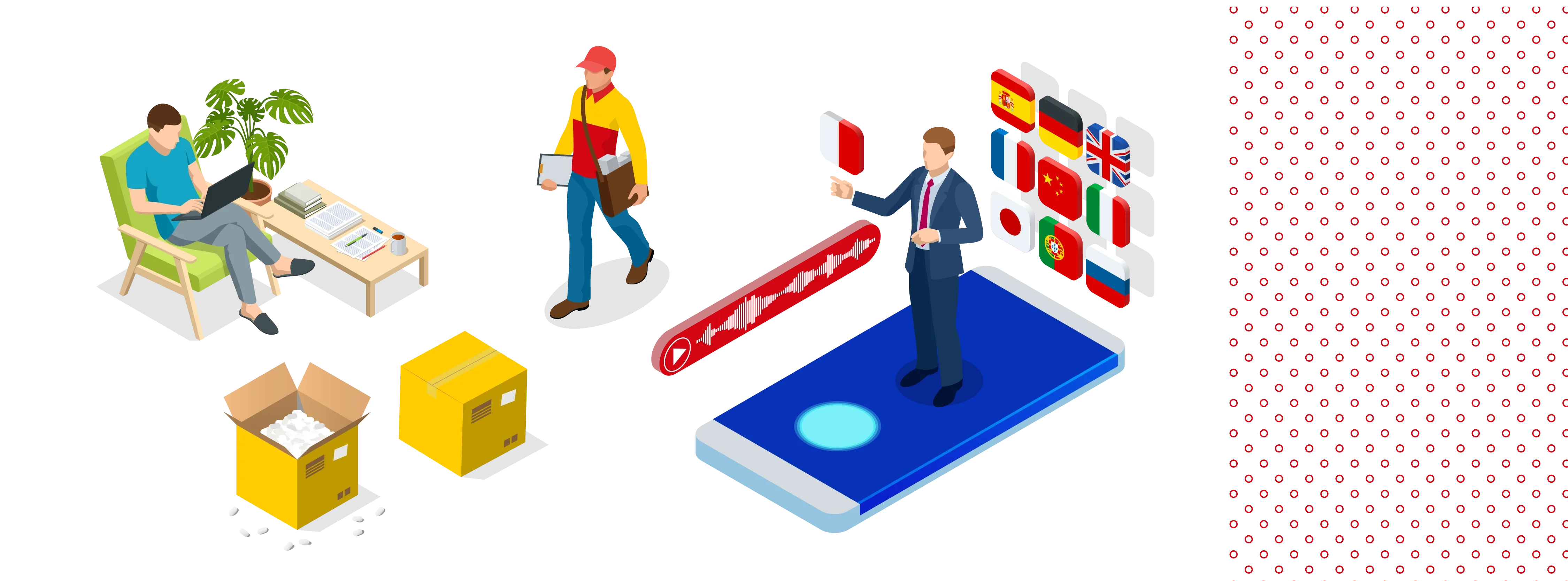Looking for new international destinations to ship to? Then look no further than Poland, one of Europe’s fastest developing e-commerce markets. The pandemic pushed many shoppers there online for the first time, and they’re not turning back.
With the right local market insights, customs knowledge, and of course an international shipping partner, your business can cash in on this growing opportunity. Read on for a comprehensive guide to exporting to Poland.

A growing e-commerce market
E-commerce revenue in Poland is expected to rise from US$13 billion in 2024 to US$20.5 billion in 2029(1).

Changing consumer behaviors
Around 77% of Polish internet users shop online(2). Whilst this is below the EU average (90%), a range of factors including high smartphone usage and a desire for convenience is driving a surge in e-commerce within the country.

Budget-conscious shoppers
Polish buyers are price sensitive – over 70% use price-comparison services when shopping online(3), whilst many also look to cross-border brands for better deals.
Where does Poland import from the most?
Poland’s leading import markets for goods4 (By value of goods, in billion euros)
DOING BUSINESS IN POLAND: CONSUMER TRENDS
Where do consumers in Poland shop online?
Online marketplaces can be a helpful gateway for cross-border businesses wishing to sell to a new country for the first time. Poland’s most popular platform, Allegro, has around 30% of the market share with 20.4 million monthly users5. It provides extensive resources and support for cross-border sellers, including sales guides and connections to local fulfilment providers.
Most visited online marketplaces in Poland6
- allegro.pl
- olx.pl
- aliexpress.com
- Temu
- sprzedajemy.pl
What are they buying?
Most popular e-commerce categories in Poland in 20237
How do Polish consumers like to pay for their online purchases?
After all, e-commerce shoppers are more likely to abandon their carts if they cannot pay using their preferred payment method.
Popular online payment methods in Poland
- Digital wallets: there are lots of options available to Polish consumers, including leading international services like PayPal, Apple Pay and Google Pay. Mobile-first digital wallets PayU and Dotpay are also popular.
- BLIK: this mobile payment solution dominates the Polish e-commerce market. It is available in almost every online store in Poland8, and some international markets, too. In the last quarter of 2023, BLIK users made 506.2 million transactions9.
- Bank transfers: traditional bank transfers are used by many Polish consumers as a secure and convenient way to pay.
- Credit cards: the annual value of card transactions in the Polish payments market was US$165.3 billion in 2023 and is expected to grow at a CAGR of more than 13% during 2023-202710.
What do Polish consumers care about when shopping cross-border?
DHL’s Global Shopper Survey 2023 unveiled some important insights into Polish consumers’ expectations when shopping with international brands.
Leading shopping holidays in Poland
ENTERING THE MARKET
Exporting to Poland: required documentation
When shipping internationally, there are several pieces of documentation commonly required to clear your goods through customs smoothly and help authorities determine what import taxes and duties are due:
- Commercial Invoice
- Bill of Lading
- Air Waybill
- Certificate of Origin
- Export and Import Licenses
- Export Packing List
- Insurance Certificate
This dedicated guide goes into detail on each document, including what information you’ll need to complete it.
Prohibited and restricted commodities
Several commodities are not permitted for shipment by DHL under any circumstances, following full consideration by the operational, legal and risk management teams. They include animals, hazardous or combustible materials, and illegal narcotics. Further information can be found here.
Useful resources
International Trade Administration – Poland Commercial Country Guide: https://www.trade.gov/poland-country-commercial-guide
Polish Investment and Trade Agency (PAIH): https://www.paih.gov.pl/en/
Polish Chamber of Commerce: https://kig.pl/
Customs and Excise Service: https://www.podatki.gov.pl/en/
Shipping costs
DHL’S expert tips for exporting to Poland
- It's important for businesses targeting the Polish market to offer a variety of delivery options. DHL’s On Demand Delivery is a flexible, convenient service that allows customers to choose exactly when and where their orders are delivered, with full tracking.
- While many Poles speak English, offering information and support in Polish can enhance communication. Using professional translation services for marketing materials and your e-commerce website is essential.
- Provide excellent customer support to address any shipping-related enquiries or issues promptly. Having a dedicated customer service team familiar with local market nuances can make a significant difference.
- Consider shipping your goods as Duties & Taxes Paid (DTP). Whilst the payment of duties and taxes on international shipments is typically the responsibility of the receiver – i.e., your customer – DHL does offer a DTP service to account holders. This means DHL will invoice the shipper (your business) to cover the costs. The benefit of this is the end customer will not receive an unexpected tax bill when their package arrives at customs – which may damage their opinion of your brand.
Thinking of exporting to Poland?
You’re in the right place! We know that the above guidelines may seem a little overwhelming, but that’s where partnering with DHL will pay off. As international shipping experts, we’ll support you through all customs procedures so that your shipment avoids delays. Sell to the world with DHL!
Start your journey here

